Complete Works of Emile Zola (804 page)
Read Complete Works of Emile Zola Online
Authors: Émile Zola

A publishing sensation upon its first appearance,
Germinal
is now Zola’s most popular work, both in France and internationally, having inspired numerous adaptations in literature and many other art forms.
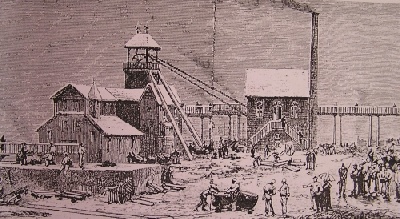
A mining operation at the time of Zola’s novel
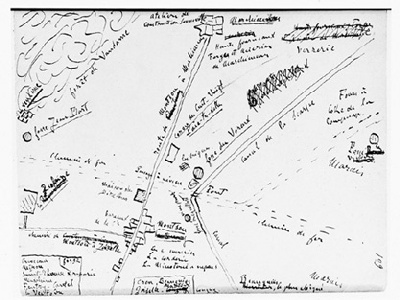
The setting of the novel as drawn by Zola
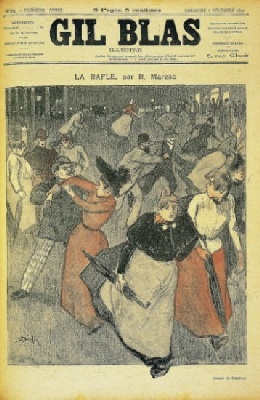
One of the magazines in which the novel was serialised
CONTENTS
CHAPTER 6
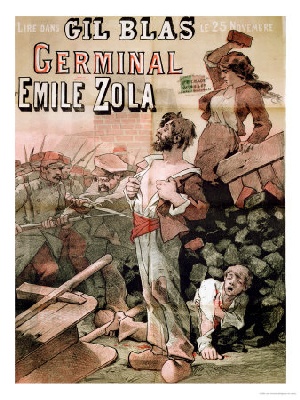
A publicity poster for the novel’s serialisation, 1884
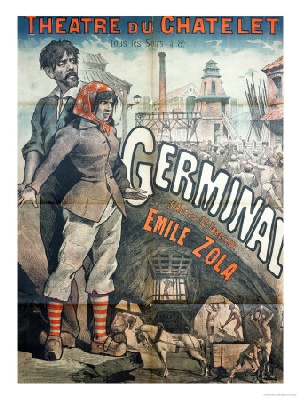
A poster for the 1888 theatre adaptation
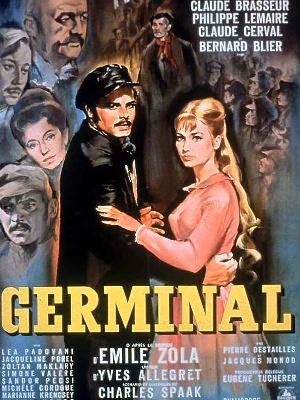
Poster of the film version of 1962
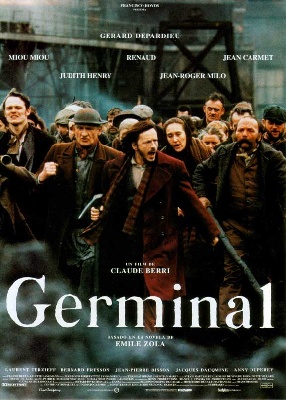
Poster of the 1993 film adaptation
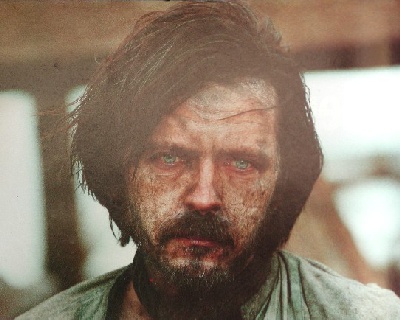
Etienne Lantier played on screen by the actor Renaud
INTRODUCTION
‘GERMINAL’ was published in 1885, after occupying Zola during the previous year. In accordance with his usual custom — but to a greater extent than with any other of his books except
La Débâcle —
he accumulated material beforehand. For six months he travelled about the coal-mining district in northern France and Belgium, especially the Borinage around Mons, note-book in hand. ‘He was inquisitive, was that gentleman’, miner told Sherard who visited the neighbourhood at a later period and found that the miners in every village knew
Germinal.
That was a tribute of admiration the book deserved, but it was never one of Zola’s most popular novels; it was neither amusing enough nor outrageous enough to attract the multitude.
Yet
Germinal
occupies a place among Zola’s works which is constantly becoming more assured, so that to some critics it even begins to seem the only book of his that in the end may survive. In his own time, as we know, the accredited critics of the day could find no condemnation severe enough for Zola. Brunetière attacked him perpetually with a fury that seemed inexhaustible; Schérer could not even bear to hear his name mentioned; Anatole France, though he lived to relent, thought it would have been better if he had never been born. Even at that time, however, there were critics who inclined to view
Germinal
more favourably. Thus Faguet, who was the recognized academic critic of the end of the last century, while he held that posterity would be unable to understand how Zola could ever have been popular, yet recognized him as in
Germinal
the heroic representative of democracy, incomparable in his power of describing crowds, and he realized how marvellous is the conclusion of this book.
To-day, when critics view Zola In the main with indifference rather than with horror, although he still retains his popular favour, the distinction of
Germinal
is yet more clearly recognized. Seillière, while regarding the capitalistic conditions presented as now of an ancient and almost extinct type, yet sees
Germinal
standing out as ‘the poem of social mysticism’, while André Gide, a completely modern critic who has left a deep mark on the present generation, observes somewhere that it may nowadays cause surprise that he should refer with admiraton to
Germinal,
but it is a masterly book that fills him with astonishment; he can hardly believe that it was written in French and still less that it should have been written in any other language; it seems that it should have been created in some international tongue.
The high place thus claimed for
Germinal
will hardly seem exaggerated. The book was produced when Zola had at length achieved the full mastery of his art and before his hand had, as in his latest novels, begun to lose its firm grasp. The subject lent itself, moreover, to his special aptitude for presenting in vivid outline great human groups, and to his special sympathy with the collective emotions and social aspirations of such groups. We do not, as so often in Zola’s work, become painfully conscious that he is seeking to reproduce aspects of life with which he is imperfectly acquainted, or fitting them into scientific formulas which he has imperfectly understood. He shows a masterly grip of each separate group, and each represents some essential element of the whole; they are harmoniously balanced, and their mutual action and reaction leads on inevitably to the splendid tragic dose, with yet its great promise for the future. I will not here discuss Zola’s literary art (I have done so in my book of
Affirmations
); it is enough to say that, though he was not a great master of style, Zola never again wrote so finely as here.
A word may be added to explain how this translation fell to the lot of one whose work has been in other fields. In 1893 the late A. Texeira de Mattos was arranging for private issue a series of complete versions of some of Zola’s chief novels and offered to assign
Germinal
to me. My time was taken up with preliminary but as yet unfruitful preparation for what I regarded as my own special task in life, and I felt that I must not neglect the opportunity of spending my spare time in making a modest addition to my income. My wife readily fell into the project and agreed, on the understanding that we shared the proceeds, to act as my amanuensis. So, in the little Cornish cottage over the sea we then occupied, the evenings of the early months of 1894 were spent over Germinal, I translating aloud, and she with swift efficient untiring pen following, now and then bettering my English dialogue with her pungent wit. In this way I was able to gain a more minute insight into the details of Zola’s work, and a more impressive vision of the massive structure he here raised, than can easily be acquired by the mere reader. That joint task has remained an abidingly pleasant memory. It is, moreover, a satisfaction to me to know that I have been responsible, however inadequately, for the only complete English version of this wonderful book, ‘a great fresco,’ as Zola himself called it, a great prose epic, as it has seemed to some, worthy to compare with the great verse epics of old.
